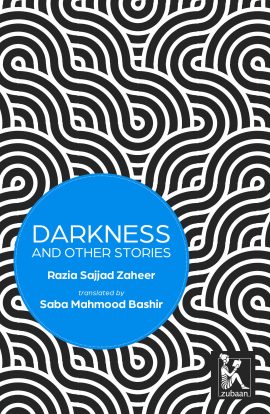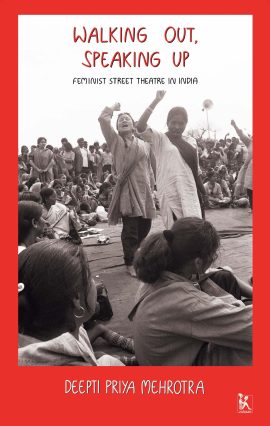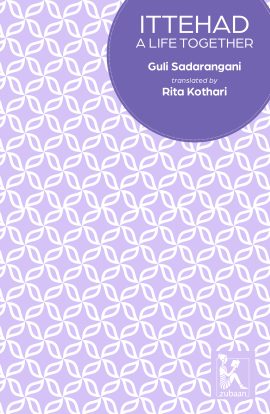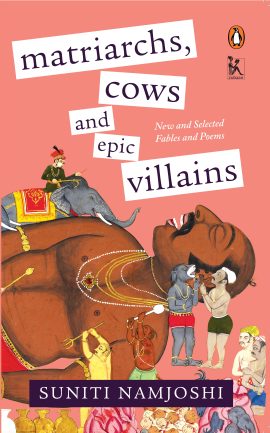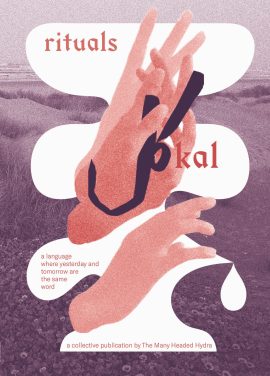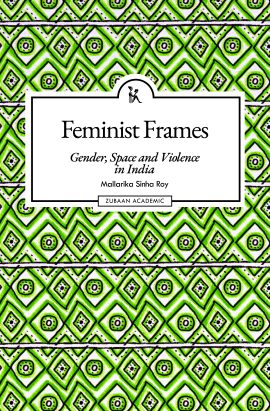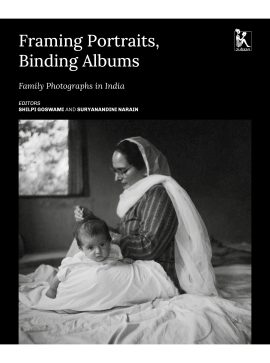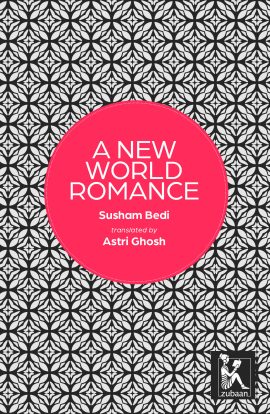No products in the cart.
Return To Shop
Log in / Sign in
Login
Register
Filter by price
Darkness and Other Stories
₹ 350 – ₹ 495Price range: ₹ 350 through ₹ 495Razia Sajjad Zaheer’s stories are gentle and unassuming tales that describe the lives of ordinary women—a homemaker, a teacher, a writer, a sex worker—whose struggles simply to be themselves, or to make sense of the realities they see around them, mark them as extraordinary. A low caste woman shows up society’s hypocrisy in dealing with caste and, in doing so, turns the mirror on her own tendency to do the same. A working woman, a mother and writer, grapples with how to deal with her over-helpful house help, a man, who thinks he knows that when she asks for tea, he must instead serve her milk. A writer travels alone on a train at night, fearful that she may be attacked by the sinister-seeming men around her, only to find that they are fans of her writing. Every story offers a situation that readers may easily recognise and relate to, and each then suggests a complex twist or an ambivalence that is sometimes elusive and sometimes illuminating. Saba Mahmood Bashir’s competent and accessible translation brings the work of this important writer—which has thus far received little attention—to life for readers of today.
_____________________________________________________________________________________Razia Sajjad Zaheer, commonly known as Razia Apa in literary circles, was born in 1917 in Rajasthan. At the age of 20, she married Sajjad Zaheer, a member of the Communist Party and one of the founders of the Progressive Writers’ Association. She got a Master’s degree in Allahabad. Her life changed when, shortly after she married, her husband was given a two-year prison sentence for his revolutionary activities. Razia took to writing, teaching and translating to make ends meet and, over time, managed the running of the household as well. She worked hard to bring her husband’s works to public attention, and continued to write alongside. She received several awards for her work, including the Nehru Award (1966) and the Uttar Pradesh Sahitya Akademi Award (1972). She passed away in 1979.
Saba Mahmood Bashir is a poet, author, translator, and assistant professor at the Department of English, Jamia Millia Islamia, New Delhi. She did her doctorate on the poetry of Gulzar. Her first book was a collection of poems, Memory Past (2006), and was followed by several others including I Swallowed the Moon: The Poetry of Gulzar (2013). She has also translated Gulzar’s screenplays of Munshi Premchand’s Godaan and Nirmala and Other Stories (2016) along with fiction by Premchand and Saadat Hasan Manto. Her recent books are Aandhi: Insights Into the Film and Women of Prey, a translation of selected stories by Manto.
Other Skies, Other Stories
₹ 420 – ₹ 595Price range: ₹ 420 through ₹ 595These stories, written originally in Hindi, reveal an author who can think and create in two languages with rare fluency. With her faultless ear for the cadences of Hindustani, Sara Rai illuminates the life of small towns with details which perhaps only a bilingual writer would pick up on. Equally important to her in the landscape of human lives is the presence of trees, birds, insects, and fish. Her Zen-like meditations on the silent yet profound movements of this world are presented in a language that is pared down, spare, and evocative. She remains unseen, but her presence animates each of her characters, whether it be Surabhi from ‘Catfish’, the eponymous Nabila, or Sour Face and Shrew from ‘Golden Anniversary’. The stories are presented here in a lucid translation by Ira Pande and the author.
______________________________________________________________________________________Sara Rai is a writer, translator, and editor. She has published four collections of short stories and a novel in Hindi. The German translation by Johanna Hahn of her selected short fiction, Im Labyrinth (The Labyrinth), won the Coburg Rückert Prize 2019 and was nominated for the Weltempfänger Prize 2020. She has translated five collections of short stories from Hindi into English, most recently Vinod Kumar Shukla’s Blue is like Blue (with Arvind Krishna Mehrotra), which won the Atta Galatta Prize 2019 and the Mathrubhumi Book of the Year Award 2020. Her memoir Raw Umber won the Tata Literature Live Book of the Year Award 2023 in the nonfiction category.
Ira Pande taught English Literature at Panjab University, Chandigarh. She has worked at The Indian Express and later, the journals Seminar and Biblio. She was with Dorling-Kindersley and Roli Books before becoming Chief Editor of the IIC Quarterly. Her English translation of Manohar Shyam Joshi’s T’ta Professor won the Crossword and Sahitya Akademi awards in 2010. She has also written, and later translated into Hindi, Diddi: My Mother’s Voice, an acclaimed memoir of her mother, the late author Shivani.
Walking Out, Speaking Up: Feminist Street Theatre in India
₹ 560 – ₹ 795Price range: ₹ 560 through ₹ 795
An energetic era of feminist street theatre in India: 1979 onwards. Stunning, audacious plays vividly portray abuse, murder and everyday sexism, raise profound questions, disrupting the normative. Public performance embodies resistance, shattering the mould of docile, invisible women. Rhythms of tambourines, drums, songs fill the air, stories are enacted, insights communicated, challenging entrenched patriarchies, evoking audience response, sparking change.A remarkable repertoire of plays unfolded across geographical and social contexts: Om Swaha, Ehsaas, Mulgi Zali Ho, Intezaar, Teri Meri Kahani, Hum Awaz Uthayeinge and hundreds more. Weaving social critique with intimate felt experience, they exposed dowry killings, sati, bigotry, sexual violence, overwork, discrimination and exploitation within families, workplaces, society and state—and showed rebellion brewing. This was a theatre of rage, pain, protest, in sync with the autonomous women’s movement of the time.Perceptive, outspoken women emerged out of a morass of ascribed roles to carve their own identities, remake the world. Protagonists broke many silences, told precious stories, offered alternative imaginaries. Fiction merged with documentary, searing content with rich aesthetics. Pithy dialogues articulated complex ideas in familiar idioms, heralding increasingly nuanced discourse around gender, citizenship and dissent, influencing media, academia, law and policy.Incorporating oral histories, auto-ethnography, scripts, visuals, archival material, meticulous research and multi-layered analysis, Deepti Priya Mehrotra’s carefully crafted study is an invaluable resource for understanding feminist street theatre, oppositional politics and counter-cultures in modern India.______________________________________________________________________________________Deepti Priya Mehrotra is a political scientist with trans-disciplinary interests. She has engaged with street theatre and the women’s movement since the late 1970s. Writing in English and Hindi, her books include Gulab Bai: the Queen of Nautanki Theatre, Home Truths: Stories of Single Mothers, Burning Bright: Irom Sharmila and the Struggle for Peace in Manipur, Her Stories: Thinkers, Workers, Rebels, Queens, Bharatiya Mahila Andolan: Kal Aaj aur Kal and Jaggi Devi: Svatantrata ki Raah Par. Deepti has taught political science, sociology, gender studies and media studies, variously at Delhi University, TISS-Mumbai, Dayalbagh Educational Institute, Agra, Ambedkar University, Delhi and the Institute of Mass Communication, Delhi. Currently, she is working on a photo archive of the autonomous women’s movement, teaching a course in educational philosophy, and collaborating with social organisations in activist, research and advisory roles. In her dissentful heart, she continues to dream of acting and singing, loudly in order to shatter the sorry scheme of things and remould it nearer to the heart’s desire.
Select format
This product has multiple variants. The options may be chosen on the product page Ittehad: A Life Together
₹ 350 – ₹ 495Price range: ₹ 350 through ₹ 495Known and celebrated in her time, Guli Sadarangani, the first woman writer of Sindh, later sank into oblivion. Perhaps this was because she dared to write about a Hindu-Muslim romance that culminated in marriage. The novel that told this story, Ittehad, was first published in undivided India, and later appeared under another title, Melaapi Jeevan. Rita Kothari’s elegant and empathetic translation of the love story of Asha and Hamid teases out the nuances of their understated relationship and reveals how pre-Independence and pre-Partition India held so many possibilities of living and loving together. Perhaps that is why, the translator speculates, members of the Sindhi community trying to find their feet in post-Partition India were uncertain of showcasing a writer whose writings represented a world that no longer seemed possible.
______________________________________________________________________________________Guli Sadarangani (1906-1994) was the first woman writer of Sindh. She was a courageous writer who wrote about a difficult subject—Hindu-Muslim relations at a time when tensions between the two communities were growing and the shadow of Partition loomed. In the annals of literature in Indian languages, and more specifically in Sindhi literature, she has remained largely invisible, not only because of her choice of subject but also the language in which she wrote, Sindhi, which itself was not accorded the status of an important literary language. This is the first English translation of her work.
Rita Kothari is professor of English at Ashoka University. An accomplished writer, multilingual scholar and translator, she is also co-director of the Ashoka Centre for Translation. She has translated extensively from Gujarati and Sindhi into English, and vice versa. She has a body of important work on the Sindhi experience of Partition, particularly her book The Burden of Refuge: Partition Experiences of the Sindhis of Gujarat (2009). Her most recent book, Uneasy Translations: Self, Experience and Indian Literature (2022), interweaves her personal journey as an academic into reflections around self, language, and translation.
Warehouse Wonders: A collection of short stories
₹ 400
Zubaan has completed more than two decades as a feminist organisation. Over these years, we’ve delivered bundles of treasures across continents. However, in the past years, specifically the lockdown, many of our treasured books took a backseat in the warehouse and their bright, crisp pages turned yellow. But the content of every book is still intact, carrying opinions, voices, equal opportunities, ample love, and the courage to build a diverse and empathetic community.Titled Warehouse Wonders, these books remain cherished and valuable for reading despite their age and wear.Come, join us in our journey of preserving books which have been handcrafted brilliantly but haven’t reached our voracious readers.Find the details about each book here:zubaanbooks.com/shop/first-there-was-woman-folk-tales-of-the-dungri-garasiya/zubaanbooks.com/shop/her-piece-of-sky-contemporary-hindi-stories/zubaanbooks.com/shop/a-rag-doll-after-my-heart-a-poetic-novel/We hope you enjoy this bundle of joy! Please note: We are shipping these orders by post. Please allow 10-14 business days for delivery. These copies cannot be returned.
Add to cart
Matriarchs, Cows and Epic Villains
₹ 499The figures in Suniti Namjoshi’s compelling stories range from shape-shifting cows to ruling mothers, from sage donkeys to epic villains. This substantial collection includes fables old and new, lyric poems and epigrams, long narratives and short introductory comments. We also complete the Ravana trilogy with ‘Shupi’s Choices’ and ‘Kumbh’. The villainous siblings are ridiculous at times, but they also show us our own shortcomings.
Funny, irreverent, tongue-in-cheek, joyful and profound, these tales are a delight to read. Matriarchs, Cows and Epic Villains is a selection of Suniti Namjoshi’s work, which continues to raise questions about how we deal with our destiny as human beings and confront our inadequacies.______________________________________________________________________________________Suniti Namjoshi is a poet, fabulist and children’s writer with over forty books to her name. After a stint in the Indian Administrative Service, Namjoshi moved to Canada where she earned a PhD at McGill University, taught at the University of Toronto for many years, and then moved on to doing what she loves best—writing. A selection of her works is published in The Fabulous Feminist (2012). Her books include Suki (2013), a memoir about her beloved cat; Foxy Aesop: On the Edge (2018), which asks point-blank whether it is the function of writers to save the world; and Dangerous Pursuits (2022), which contains ‘Bad People’, the first part of the trilogy about Ravana and his siblings.Women Writing History: Three Generations
₹ 420 – ₹ 595Price range: ₹ 420 through ₹ 595Three historians. Three generations. Spanning nearly a century of work, Romila Thapar, Kumkum Roy and Preeti Gulati, reflect on their lives and their engagement with one of the most demanding, and most crucial, disciplines of our times. Personal narratives of growing up—learning about history, charting new and distinct paths as researchers, the challenges of teaching—meld effortlessly into a larger and complex changing context: the emergence of an independent nation, of movements that have helped shape the process, and of resistance. To what extent, the authors ask, have feminisms made a difference? Can these interventions lead to redefining or rejuvenating the discipline, transforming it into a more inclusive space where diverse voices can be acknowledged and heard with respect and understanding? These and other questions inform this accessible and lucid text.
______________________________________________________________________________________ROMILA THAPAR is Professor Emerita, Ancient History, at Jawaharlal Nehru University, New Delhi. Her special contribution to history is the use of social-historical methods to understand change in the mid-first millennium BCE in northern India. Among her many publications are Asoka and the Decline of the Mauryas (1961), From Lineage to State (1984), and Early India: From Origins to AD 1300 (2002). She has been honoured with doctorates from the Universities of Chicago, Oxford, Edinburgh, Calcutta, Hyderabad, Pretoria, Brown University and the Institut National des Langues et Civilisations Orientales. She is an Honorary Fellow of the School of Oriental and African Studies in London from where she also received her PhD, and a Foreign Honorary Member of the American Academy of Arts and Sciences. In 2008, she shared the US Library of Congress’s Kluge Prize for lifetime achievement in the humanities and social sciences.
KUMKUM ROY did her PhD in Ancient Indian History from the Centre for Historical Studies, Jawaharlal Nehru University, New Delhi. She taught at Satyawati Co-educational College, Delhi University, and at the Centre for Historical Studies, Jawaharlal Nehru University. With a specialisation in ancient Indian history, her areas of interest include histories of political institutions and processes and issues of gender. Among her publications are The Emergence of Monarchy in North India (1994), A Historical Dictionary of Ancient India (2009) and The Power of Gender and the Gender of Power (2010). She is also interested in issues of pedagogy at various levels.
PREETI GULATI teaches History at Krea University. Her research interests lie in early Indian texts, everyday practices, and the history of institutions. She is currently working on a monograph on food and power in early India, which is based on her PhD thesis.
Kal Rituals
₹ 795The first in a series of publications emerging from the transoceanic platform kal, RITUALS proposes queer and trans-feminist ecologies, embodiments and mythmaking. The contributions trace and disrupt cross-colonial legacies through bodies of water lapping at the shorelines of the Arabian Sea, the Indian Ocean, and the Atlantic. kal RITUALS is an ode to transterritorial alliances that disrupt binary contours of time and being.
kal RITUALS assembles practices of queer world building in extended pandemic time, amidst deep ecological and social transformations, offering an expression of anti-colonial resistance and joy.
_____________________________________________________________________________________kal RITUALS is a collective work by The Many Headed Hydra. Connecting art, research and publishing, The Many Headed Hydra magazines engage bodies of water as ecological collectivities and tidal archives to set resistant knowledges into motion.
This publication emerges from a language where yesterday and tomorrow are the same word. kal., an self-organized artistic platform spanning Karachi, Colombo, Berlin and beyond.
Feminist Frames: Gender, Space and Violence in India
₹ 625 – ₹ 895Price range: ₹ 625 through ₹ 895This book revisits approaches to South Asian feminist politics through the lens of shared historical memories and their social spatialisation. The author looks at borderlands, socialist visions of internationalism, cultures of travel, theatre history, artist-activist performances, and connected histories of discrete geo-political formations. Locating the book’s spatial context in Bengal—for its long tradition of militant movements and its historical cross-border connections—Sinha Roy attempts to release the spatial into South Asian feminism and historicise the space and place of Bengal in a dynamic relationship with time. She argues that in addition to plotting a temporally progressive chronological story of gender, violence and love in the inert space of Bengal (bracketed by national and international borders), the practices of spatialisation play an active role as temporal emplotment, in organising and prioritising the major place-based arguments.
______________________________________________________________________________________MALLARIKA SINHA ROY is an assistant professor at the Centre for Women’s Studies, Jawaharlal Nehru University, New Delhi. She is a recipient of the Erasmus Fellowship, University of Cologne, and a post-doctoral fellowship from the Danish Agency for Science, Technology and Innovation. She has been co-principal investigator in the University Grants Commission project ‘Traces of the Global: Displacement, Memory, Cultural Citizenship 2014-19’ and a British Academy project, ‘Cultures of the Left’. She has many publications to her credit, including Gender and Radical Politics in India: Magic Moments of Naxalbari (1967-1975), Utpal Dutt and Political Theatre in Postcolonial India (2024), and she is co-editor with Papori Bora, Vijaya Rao and Shambhavi Prakash, of Displacement and Citizenship: Histories and Memories of Exclusion (2020). She has published in many peer-reviewed journals and has contributed chapters to various books.
Framing Portraits, Binding Albums: Family Photographs in India
₹ 875 – ₹ 1,250Price range: ₹ 875 through ₹ 1,250Long neglected in academic discourse in India, family photographs make a silent contribution to the histories of photography, marginality and the family. In this volume, the writers dwell on the importance of family photographs and their visual omnipresence in our daily lives.
They point out how family photographs have belonged to the ‘vernacular’ material of visual culture, more seen and lived with, less written and consciously thought about. Attempting to retrieve family photographs from a space of neglect, this volume demonstrates how they are fundamental to the microhistories of a nation and its many societies, and suggests the importance of such counterarguments to the dominant strains in an emerging discursive space.
The essays do not offer a comprehensive survey of all types of family photographs in India. Instead, they present focused insights into chosen areas of interest on the part of the writers. Collectively, they embrace the intersectionalities of gender, caste, class and regional trajectories, making the politics of representation even more layered with contestations between the historical, oral and affective memorialisation surrounding family archives and photographs. These concerns centrally inform the essays, as they accept and negotiate a terrain shared by all types of narrativisation.
______________________________________________________________________________________SHILPI GOSWAMI is an independent editor, researcher and curator with a PhD in Cultural Studies. She has been an archivist for the Alkazi Foundation for the Arts, a curator at the Kiran Nadar Museum of Art, programme manager for What About Art? for Qatar Museums, Artistic Director of Gallery Nature Morte. Shilpi has co-authored Mastering the Lens: Before and After Henri Cartier-Bresson in Pondicherry (2013), and has contributed to Allegory and Illusion: Early Portrait Photography from South Asia (2013), Unveiling India: The Early Lensmen, 1850-1910.
SURYANANDINI NARAIN is Assistant Professor in Visual Studies at the School of Arts and Aesthetics, Jawaharlal Nehru University, New Delhi. She teaches courses on Indian visual culture, photography, aesthetic theory and critical writing. She has written extensively on photography and visual culture in India, especially around themes of women, the family, the home, everyday aesthetics and studio photography.
A New World Romance
₹ 420 – ₹ 595Price range: ₹ 420 through ₹ 595An accidental meeting at a seminar brings Ketaki and Aditya, two academics based in the United States, together. Well established in their careers, with romantic and marital relationships behind them, they are located in different cities in what the author calls the ‘new world’ or Navabhum, while the ‘old world’ or Purabhum has long been left behind. Neither is in search of a relationship, but they find themselves falling deeply and inexorably in love. Even as the new world opens up infinite possibilities, the old world casts its gentle shadow over their lives and touches everything. Where, the author asks, will their love take them? Susham Bedi’s moving and delicately crafted novel is brought to us in this sensitive and nuanced translation by Astri Ghosh.
______________________________________________________________________________________Susham Bedi has left an indelible mark on Hindi literature with her nine novels, numerous short story collections, and poetry. Her writings, which often delve into the lives of Indian diaspora communities, have been translated into English, Urdu, French, and Dutch. She was honoured with prestigious awards from the Uttar Pradesh Hindi Sansthan (2007) and the Sahitya Academy in Delhi (2006). She also shared her knowledge and passion for Hindi language and literature as a teacher at Columbia University. Her academic journey, which began at Delhi University and culminated in a PhD from Punjab University, focused on Hindi language drama. She also served as the Editor of Vishvā, a quarterly journal published by the International Hindi Association.
Astri Ghosh is a translator, writer, actor and teacher. Growing up in New Delhi with a Norwegian mother and an Indian father, Ghosh developed a deep understanding of both Indian and Norwegian cultures from an early age. This has enabled her to effectively bridge cultural gaps in her translations. She translates into Hindi, English, and Norwegian. She has translated works by Jon Fosse, Henrik Ibsen, Qurratulain Hyder, Rabindranath Tagore, Guru Nanak, Lars Saabye Christensen, and Per Petterson. Astri has also translated a collection of hymns from Sikh scriptures to Norwegian in Sanger fra Adi Granth. She has acted in two films.
Warehouse Wonders: Young Zubaan
₹ 350
This year, Zubaan commemorates 21 years as a feminist organisation. Over these years, we’ve delivered bundles of treasures across continents. However, in the past years, specifically the lockdown, many of our treasured books took a backseat in the warehouse and their bright, crisp pages turned yellow. But the content of every book is still intact, carrying opinions, voices, equal opportunities, ample love, and the courage to build a diverse and empathetic community.Titled Warehouse Wonders, these books remain cherished and valuable for reading despite their age and wear.Come, join us in our journey of preserving books which have been handcrafted brilliantly but haven't reached our voracious readers.Find the details about each book here:zubaanbooks.com/shop/jungu-the-baiga-princess/zubaanbooks.com/shop/the-dugong-and-the-barracudas/zubaanbooks.com/shop/the-blue-book-what-you-want-to-know-about-yourself/zubaanbooks.com/shop/chhotechacha-ab-aapke-shahar-mein/We hope you enjoy this bundle of joy! Please note: We are shipping these orders by post. Please allow 10-14 business days for delivery. These copies cannot be returned.
Add to cart
Categories
Filter by Author
Filter by
Product tags
academic
Bangladesh
caste
conflict
culture
Dalit women
e-essays
feminism
feminist
feminist fiction
Feminist literature
Fiction
gender
gender studies
health
history
impunity
India
Kashmir
legislation
Literary Fiction
Memoir
Nagaland
New Editions
Non-Fiction
Northeast India
Pakistan
Poetry
sexual violence
Short Stories
sociology
South Asia
state impunity
SVI
SVI Project
Top Ten
translation
violence
violence against women
warehouse wonders
women writer
women writers
young zubaan
zubaanbooks
Zubaan Classics
Contact Us
© Zubaan 2019. Site Design by Avinash Kuduvalli.
Payments on this site are handled by CCAvenue.

